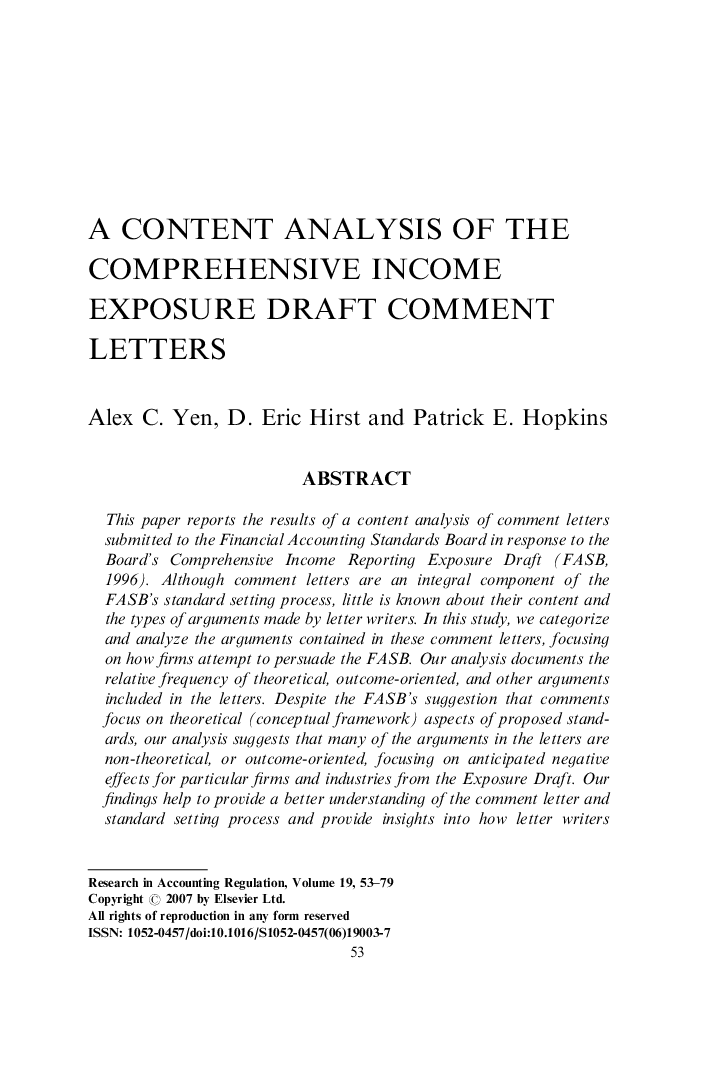| Article ID | Journal | Published Year | Pages | File Type |
|---|---|---|---|---|
| 1006759 | Research in Accounting Regulation | 2007 | 27 Pages |
This paper reports the results of a content analysis of comment letters submitted to the Financial Accounting Standards Board in response to the Board's Comprehensive Income Reporting Exposure Draft (FASB, 1996). Although comment letters are an integral component of the FASB's standard setting process, little is known about their content and the types of arguments made by letter writers. In this study, we categorize and analyze the arguments contained in these comment letters, focusing on how firms attempt to persuade the FASB. Our analysis documents the relative frequency of theoretical, outcome-oriented, and other arguments included in the letters. Despite the FASB's suggestion that comments focus on theoretical (conceptual framework) aspects of proposed standards, our analysis suggests that many of the arguments in the letters are non-theoretical, or outcome-oriented, focusing on anticipated negative effects for particular firms and industries from the Exposure Draft. Our findings help to provide a better understanding of the comment letter and standard setting process and provide insights into how letter writers believe accounting information is used. The setting of our study is particularly interesting as the changes proposed in the Comprehensive Income Reporting Exposure Draft were strictly presentation-related and did not affect companies’ reported net income or financial condition. Therefore, the contractual motivations related to debt covenants and/or management compensation offered in previous research to explain comment letter writing, are mostly not present in this setting.
